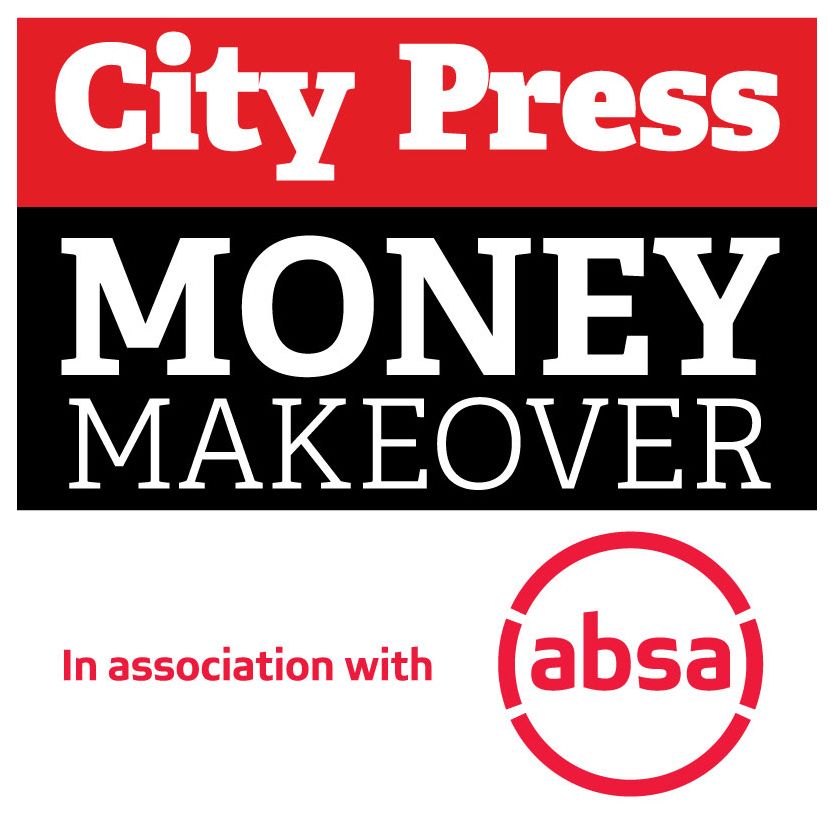The Financial Crisis Plan
It is not often that someone becomes overindebted due to day-to-day spending – it is usually because of an unexpected event, writes Maya Fisher-French.

In these situations, one may already have high debt levels, but it is that one extra negative experience, such as losing a job or making a poor financial investment, that can push you over the edge. While this situation may feel overwhelming, you can find your way out if you take the right steps and put together a plan of action.
BEWARE THE CREDIT FACILITY
Local government employee Wisani’s partner lost her job during the Covid-19 lockdown. To tide the family over, Wisani took out a loan with a micro lender, but this led them into a debt spiral.
Also bear in mind that many credit institutions will offer a loan facility exceeding the amount you need. Invariably, with the credit easily available, you will be tempted to keep using it. This is exactly what happened in Wisani’s case and he kept drawing on the micro loan facility until it was maxed out.
As long as the credit lines are available, we are not forced to review and change our daily spending habits. If you are faced with a financial squeeze, don’t think debt is an easy way out – it comes at a significant cost and usually results in greater financial hardship.

IMMEDIATELY REVIEW YOUR SITUATION
When faced with a financial crisis, take time to look at all your options. Is there something that will change your financial situation in the near future?
In Wisani’s case, he will be receiving a bonus in November, so he knows there will be financial relief if he can keep paying his bills until then.
In the case of franchise owners Sanet and Marius, their car will be paid off later this year, which will give them an additional cash injection.
For other people, it may be making ends meet until you find a new job. The first step is to take a good look at your day-to-day spending.
Wisani’s adviser, Nishen Moodley, identified some spending behaviours that were resulting in unnecessary costs. Wisani was making multiple purchases of electricity and airtime during the month and drawing money from non-Absa ATMs – all these were incurring unnecessary bank fees.
Poor money management was resulting in bounced debt orders, which cost him R310 a month. By buying electricity and airtime once a month, ensuring that debit orders were provided for and only drawing cash at either Absa ATMs or at retail stores, Wisani saved R500 a month. This means that he will be able to meet all his debt obligations.

HAVE A DEBT PRIORITY PLAN
In November, Wisani will receive his annual bonus and these funds will enable him to fully settle his micro loan. This will put nearly R3 500 back into his budget each month and allow him to start paying off his other loans.
When you have multiple loans, the idea of tackling them may feel overwhelming at first. By targeting a single debt initially, you have an immediate sense of achievement and motivation to continue.
Once your first debt is paid off, the funds you were paying to service that debt can then be used to tackle the next one. This is known as the snowball effect.
ALWAYS SPEAK TO YOUR CREDITORS
When it comes to your debts, talk to your creditors before you start missing payments. This is a trust relationship and if you start missing payments, the trust is broken and it becomes more difficult to negotiate terms. If you have an asset such as a car or a home loan, your bank will be open to a discussion, but you must be upfront about your situation – don’t just miss payments and hope for the best.
You may find that your contract allows you to miss a payment without a penalty. For example, Wisani discovered that the funeral plan he has in place for his mother allows for a three-month premium waiver in the case of financial difficulty.
Dirk le Grange, head of collections at Absa Vehicle and Asset Finance, says all the bank’s contracts allow customers who are up to date with their debt repayments to have a one-month payment holiday.
However, you need to inform the bank – you cannot just miss a payment, as this would be seen as a default and reflect negatively on your credit record. He says if a customer is unable to pay their full instalment, they should contact their vehicle finance provider and enquire about what arrangements could be made.
You can come to an agreement to lower the instalment for a period. Or, if you are unable to make any payment or see your situation as more permanent, then you can sell the vehicle through Absa’s HelpUSell platform to ensure they receive the best price and is linked to settlement plans that provide for any shortfall remaining after the sale.
When to consider debt consolidation
Franchise owners Sanet and Marius have saved nearly R147 000 by consolidating their loans.
The couple had several loans which they incurred over the last few years. Their financial adviser Pieter Myburgh advised them to apply for a debt consolidation loan.
Debt consolidation is when you take a single loan to settle several high interest loans. There is usually a cost saving on fees and you could possibly qualify for a lower interest rate. Sanet and Marius have managed to cancel their franchise agreement which has put an extra R5000 a month back into their budget. As their financial situation has improved, Absa was prepared to give them a consolidation loan at a better interest rate.
Sanet and Marius were paying R7 400 toward the loan repayment. The debt consolidation loan reduced the installment to R5 655.
Not only have they reduced their monthly repayments, but the consolidation loan has reduced the amount of interest they would have paid over the period from R217 996 to R71 019 – a huge saving of R146 977 in interest alone. Adding the franchise fees of R5 000 over a 5-year period they saved a further R270 000 in fees that should have been paid.
“So not only is the monthly cash flow substantially better, we also saved them, over a 5-year period, approximately R416 000,” says Myburgh.
If someone is in a situation where their cashflow was still constrained, a debt consolidation loan could provide breathing space by extending the period of repayment. This does mean that over time one would be paying more for the loan as the longer you take to repay, the more interest you incur. However, if you are struggling to meet the repayments, debt consolidation would be a better option than defaulting. Always ask for a quote to compare the total cost of the loan compared to your current credit agreements. To consolidate debt, you need to have a reasonable credit score, so this is something you should do before you start to default.
Not paying is NOT a solution
When your debts feel too overwhelming, you may be tempted to just stop paying them. Debt never goes away, it just becomes more expensive to repay.
If you fail to respond to requests from your creditors, a National Credit Act section 129 letter will be sent to you. This will be your last opportunity to reach an agreement with your credit provider.
If you have not responded within 30 days, you will receive a summons to appear in court. If you fail to do so to defend yourself, it is most likely that judgment will be made against you. It is worth noting that if you do appear in court, you have an opportunity to address the magistrate and offer a repayment plan.
However, if you do not show up, the creditor is issued a judgment order. This will allow them to attach your asset (especially in the case of car or home finance) or deduct a portion of your salary (commonly known as a garnishee order). And that judgment will be registered with the credit bureaus.
As long as that judgment remains on your credit profile, it will be impossible to get credit again. Once a judgment has been issued, additional legal fees can be incurred, which can more than double the outstanding debt amount.
The act allows for legal fees to be charged to the debtor. Ignoring your debt is simply not an option. It will eventually have to be paid and usually at a much higher price. Another option is to apply for debt review.
This is only an option if the legal action has not commenced. You can still apply for debt review within 30 days of receiving the section 129 letter. Debt review is a court ordered agreement with your creditors to a structured repayment plan based on your affordability.
The debt review protects your assets, such as your house and car, from being repossessed, but only if you honour the repayment plan. If you stop paying your debt review payments, the protection falls away and the creditors can foreclose on your assets.
If you really want to get your finances in order, you have to start tracking your spending. If you cannot commit to that, it is unlikely you will be able to reach your goals.
Follow the journey – and join in – @CPMoneyMakeover on Facebook and Twitter
Absa Enterprise Development assists SMEs with access to business development support, markets access and access to funding based on certain criteria’s being met. For further information on Absa Enterprise Development you can email ed@absa.africa
You can follow the story on social media #CPMoneyMakeover

Facebook: @CPMoneyMakeover

Twitter: @CPMoneyMakeover
Subscribe below for the Money Makeover Newsletter






